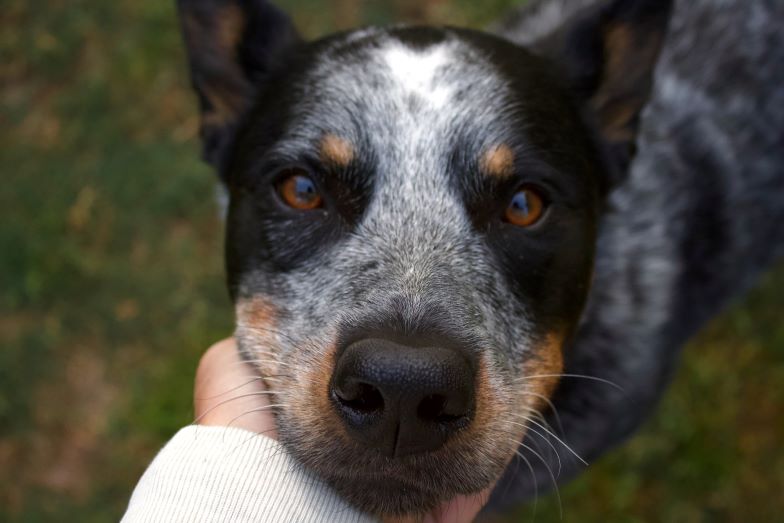Ready to help treat your pet to a healthy life?
The Most Stressed-Out Dog and Cat Breeds
By : Brianna Gunter | Published Dec 3, 2024

If you’ve gotten to know more than one pet, you may already know that not all dogs and cats handle stress the same way. While some pets thrive in bustling environments, others are more sensitive to change, noise, and other stimuli. Certain dog and cat breeds are more prone to anxiety due to their genetic makeup, temperament, personal experiences, or even a combination of all three. For instance, high-energy dogs may struggle without enough exercise, while social cats may feel anxious when left alone.
New data from Trupanion supports that some dog and cat breeds may indeed be more likely to get stressed out than others. And, on top of that, pet stress and anxiety may actually be on the rise. In 2023 alone, Trupanion handled a whopping 21,180 anxiety-related claims for pets. But between 2019 and 2023, the average was 12,178 anxiety claims per year. That’s a more than 227% increase!
Fortunately, understanding which breeds are most susceptible to stress can help you create a more supportive environment for pets. Let’s take a look!
Pet breeds with the highest stress risk
Anxiety can be a long-term issue for some pets. As the Trupanion data shows, pet owners with extra-anxious furry friends may expect to file about three claims for this condition over their pet’s lifetime. While dogs and cats come with a wide range of personalities and natural stress levels even among their own breeds, their genetics may play a role when it comes to risk.
Wondering about your own dog or cat? According to Trupanion claims data from 2019 to 2023, these are the pets who may be most at risk.
Top 5 dog Breeds for anxiety claims
- Pyrenean Mountain Dog (Great Pyrenees)
- English Springer Spaniel
- Olde English Bulldog
- Shetland Sheepdog
- Australian Cattle Dog

Learn more about different kinds of canines and their health risks with our dog breed guide!
Top 5 cat breeds for anxiety claims
- Siamese
- Bengal
- Persian
- Ragdoll
- Siberian

Curious about your cat’s particular health risks? Check out our cat breed guide to learn more.
Tackling pet anxiety in any breed
Stress in pets isn’t just an emotional issue; it can lead to physical health problems, behavioral issues, and a diminished quality of life. Chronic stress can weaken your pet’s immune system, making them more susceptible to illnesses, and may contribute to digestive problems, skin issues, or heart conditions. Beyond health concerns, stressed pets are more likely to develop destructive behaviors, such as chewing, scratching, or barking excessively, as a way to cope.
Easing pet stress is therefore vital for the well-being and happiness of both your pet and yourself. A calm, relaxed pet is not only healthier but also easier to live with. Recognizing and addressing stressors — like loud noises, loneliness, or changes in routine — can make a world of difference.
Tips for easing pet stress
Whether it’s creating a safe, quiet space, ensuring they get plenty of exercise, or using calming aids, there are many ways to help anxious feel secure.
- Provide a safe space — Create a quiet, cozy area your pet can retreat to when feeling stressed out. A favorite bed, crate, or corner with a blanket works great!
- Stick to a routine — Pets thrive on consistency. Keep feeding, walks, and playtimes as predictable as possible to help your pal feel secure.
- Exercise regularly — Daily physical activity reduces stress by burning off excess energy and promoting the release of calming endorphins.
- Offer mental stimulation — Interactive toys, puzzles, and training exercises can all help keep your pet’s mind busy and distract them from their anxiety triggers.
- Try calming products — With approval from your veterinarian, consider pheromone diffusers, anxiety wraps, or herbal supplements designed to help pets relax.
- Use music or white noise — Soft music or white noise can mask stressful sounds (like fireworks or thunderstorms), creating a soothing environment.
- Reward calm behavior — Offer treats or praise when your pet stays calm during stress-triggering situations. This will help them associate staying calm with positive experiences.
- Avoid punishment — Whatever you do, avoid punishing stressed pets. Scolding them will only make things worse. Focus on positive reinforcement instead.
- Seek Professional help — For severe anxiety, consult your veterinarian. They can recommend tailored solutions, including medication if necessary. A pet behaviorist can also help.
- Show extra love and patience — It can be frustrating when a stressed pet is acting out. But just know that your presence is often the most comforting thing. Be calm, reassuring, and attentive, and they’ll be more likely to calm down faster.

Supporting your pet’s physical and mental health
Cat and dog breeds prone to anxiety can be at greater risk of a number of stress-related illnesses. They may also be at higher risk of accidents, as certain situations and stimuli could trigger sudden, unsafe behaviors. Anxiety in animals can lead to costly vet visits as a result. So, you might need a more proactive approach if you feel your pet is at higher risk.
In addition to becoming aware of your pet’s stressors, you’ll want to keep up with preventative veterinary care and checkups. It’s also important to make sure your pet eats a healthy diet and gets the right balance of daily exercise and rest. And, if you haven’t done so already, consider protecting your dog or cat with a good pet health insurance plan.
